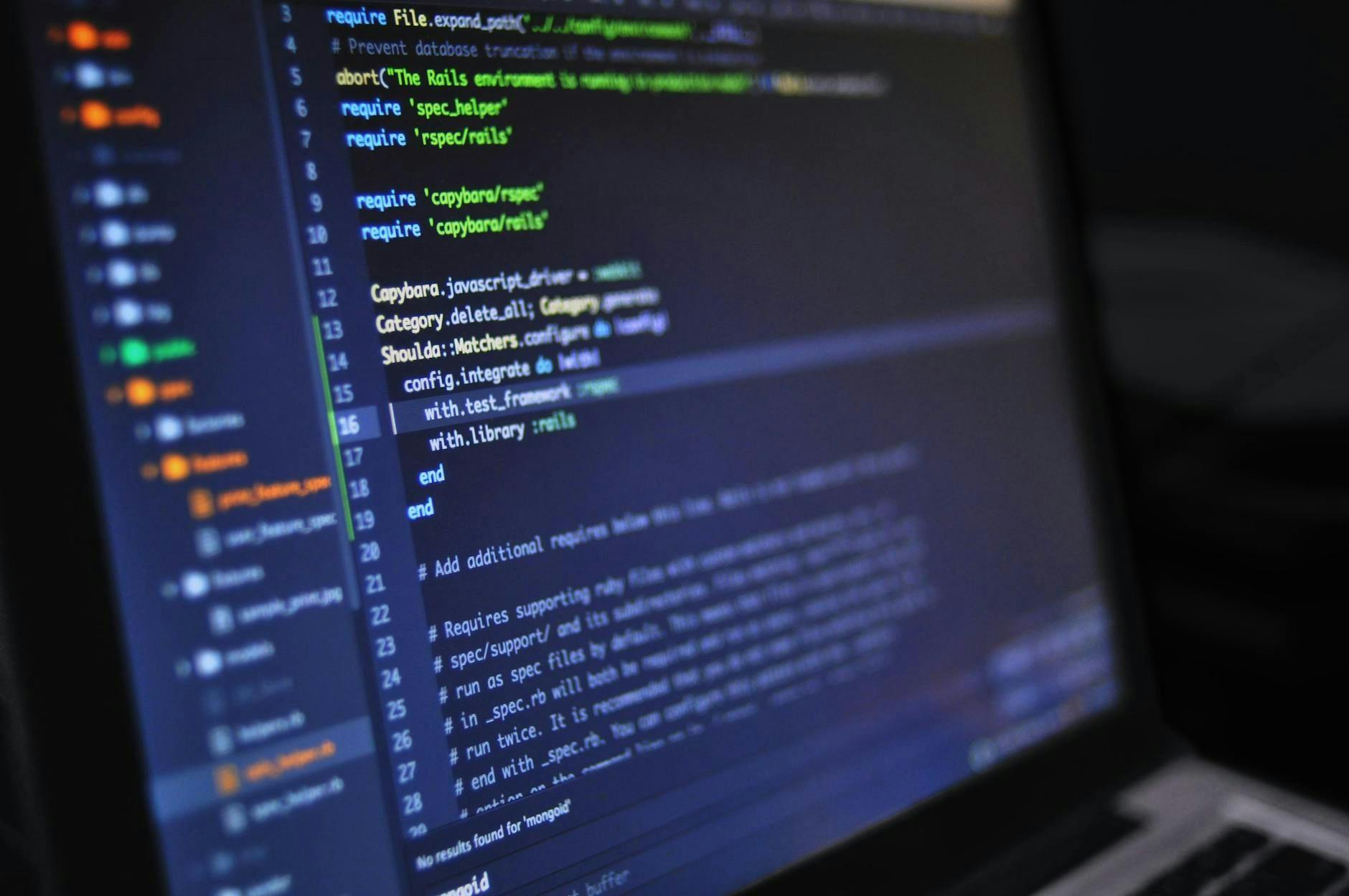Authors:
(1) Lewis Tunstall, Equal contribution and The H4 (Helpful, Honest, Harmless, Huggy) Team (email: [email protected]);
(2) Edward Beeching, Equal contribution and The H4 (Helpful, Honest, Harmless, Huggy) Team;
(3) Nathan Lambert, The H4 (Helpful, Honest, Harmless, Huggy) Team;
(4) Nazneen Rajani, The H4 (Helpful, Honest, Harmless, Huggy) Team;
(5) Kashif Rasul, The H4 (Helpful, Honest, Harmless, Huggy) Team;
(6) Younes Belkada, The H4 (Helpful, Honest, Harmless, Huggy) Team;
(7) Shengyi Huang, The H4 (Helpful, Honest, Harmless, Huggy) Team;
(8) Leandro von Werra, The H4 (Helpful, Honest, Harmless, Huggy) Team;
(9) Clementine Fourrier, The H4 (Helpful, Honest, Harmless, Huggy) Team;
(10) Nathan Habib, The H4 (Helpful, Honest, Harmless, Huggy) Team;
(11) Nathan Sarrazin, The H4 (Helpful, Honest, Harmless, Huggy) Team;
(12) Omar Sanseviero, The H4 (Helpful, Honest, Harmless, Huggy) Team;
(13) Alexander M. Rush, The H4 (Helpful, Honest, Harmless, Huggy) Team;
(14) Thomas Wolf, The H4 (Helpful, Honest, Harmless, Huggy) Team.
Table of Links
- Abstract and Introduction
- Related Work
- Method
- Experimental Details
- Results and Ablations
- Conclusions and Limitations , Acknowledgements and References
- Appendix
6 CONCLUSIONS AND LIMITATIONS
We consider the problem of alignment distillation from an LLM onto a smaller pretrained model. The method avoids the use of sampling-based approaches like rejection sampling or PPO, and distills conversational capabilities with direct preference optimization (DPO) from a dataset of AI feedback. The resulting model ZEPHYR-7B, based on MISTRAL-7B, sets a new state=of-the-art for 7B parameter chat models, and even outperforms LLAMA2-CHAT-70B on MT-Bench. We hope this approach motivates further exploration of the capacity of smaller, open-models by demonstrating their ability to align to the intent of user interactions.
There are several limitations associated with our study. The main one is the use of GPT-4 as an evaluator for the AlpacaEval and MT-Bench benchmarks, which is known to be biased towards models distilled from it, or those that produce verbose, but potentially incorrect responses. Another limitation is examining whether our method scales to much larger models like LLAMA2-70B, where the performance gains are potentially larger.
7 ACKNOWLEDGEMENTS
We thank Philipp Schmid for many helpful discussions on aligning LLMs, Olivier Dehaene and Nicolas Patry for their assistance with model deployments, Yacine Jernite for his valuable advice on preparing responsible model releases, and Pedro Cuenca for providing feedback on the report. We are grateful to Eric Mitchell, Rafael Rafailov, and Archit Sharma for sharing their insights on DPO. Teven Le Scao for helping with initial experiments. The Mistral, UltraChat, UltraFeedback, Alpaca, and LMSys projects for their support and for releasing great open models. This work would not have been possible without the Hugging Face Training Cluster, and we thank Guillaume Salou and Guillaume Legendre for their help with making the GPUs go brrrr.
REFERENCES
Fasteval, 2023.
Together AI. Releasing 3b and 7b redpajama-incite family of models including base, instruction-tuned and chat models, 2023. URL https://together.ai/blog/ redpajama-models-v1.
Yuntao Bai, Andy Jones, Kamal Ndousse, Amanda Askell, Anna Chen, Nova DasSarma, Dawn Drain, Stanislav Fort, Deep Ganguli, Tom Henighan, Nicholas Joseph, Saurav Kadavath, Jackson Kernion, Tom Conerly, Sheer El-Showk, Nelson Elhage, Zac Hatfield-Dodds, Danny Hernandez, Tristan Hume, Scott Johnston, Shauna Kravec, Liane Lovitt, Neel Nanda, Catherine Olsson, Dario Amodei, Tom Brown, Jack Clark, Sam McCandlish, Chris Olah, Ben Mann, and Jared Kaplan. Training a helpful and harmless assistant with reinforcement learning from human feedback, 2022.
Edward Beeching, Clementine Fourrier, Nathan Habib, Sheon Han, Nathan Lambert, Nazneen Ra- ´ jani, Omar Sanseviero, Lewis Tunstall, and Thomas Wolf. Open llm leaderboard. https: //huggingface.co/spaces/HuggingFaceH4/open_llm_leaderboard, 2023.
Wei-Lin Chiang, Zhuohan Li, Zi Lin, Ying Sheng, Zhanghao Wu, Hao Zhang, Lianmin Zheng, Siyuan Zhuang, Yonghao Zhuang, Joseph E Gonzalez, Ion Stoica, and Eric P Xing. Vicuna: An Open-Source chatbot impressing GPT-4 with 90%* ChatGPT quality, March 2023.
Hyung Won Chung, Le Hou, Shayne Longpre, Barret Zoph, Yi Tay, William Fedus, Yunxuan Li, Xuezhi Wang, Mostafa Dehghani, Siddhartha Brahma, Albert Webson, Shixiang Shane Gu, Zhuyun Dai, Mirac Suzgun, Xinyun Chen, Aakanksha Chowdhery, Alex Castro-Ros, Marie Pellat, Kevin Robinson, Dasha Valter, Sharan Narang, Gaurav Mishra, Adams Yu, Vincent Zhao, Yanping Huang, Andrew Dai, Hongkun Yu, Slav Petrov, Ed H Chi, Jeff Dean, Jacob Devlin, Adam Roberts, Denny Zhou, Quoc V Le, and Jason Wei. Scaling Instruction-Finetuned language models. October 2022.
Peter Clark, Isaac Cowhey, Oren Etzioni, Tushar Khot, Ashish Sabharwal, Carissa Schoenick, and Oyvind Tafjord. Think you have solved question answering? try ARC, the AI2 reasoning challenge, 2018.
Ganqu Cui, Lifan Yuan, Ning Ding, Guanming Yao, Wei Zhu, Yuan Ni, Guotong Xie, Zhiyuan Liu, and Maosong Sun. UltraFeedback: Boosting language models with high-quality feedback. October 2023.
Tri Dao. FlashAttention-2: Faster attention with better parallelism and work partitioning. 2023.
Harm De Vries. Go smol or go home, 2023. URL https://www.harmdevries.com/post/ model-size-vs-compute-overhead/.
Tim Dettmers, Artidoro Pagnoni, Ari Holtzman, and Luke Zettlemoyer. Qlora: Efficient finetuning of quantized llms, 2023.
Ning Ding, Yulin Chen, Bokai Xu, Yujia Qin, Zhi Zheng, Shengding Hu, Zhiyuan Liu, Maosong Sun, and Bowen Zhou. Enhancing chat language models by scaling high-quality instructional conversations. May 2023.
Yann Dubois, Xuechen Li, Rohan Taori, Tianyi Zhang, Ishaan Gulrajani, Jimmy Ba, Carlos Guestrin, Percy Liang, and Tatsunori B. Hashimoto. Alpacafarm: A simulation framework for methods that learn from human feedback, 2023.
Yao Fu, Litu Ou, Mingyu Chen, Yuhao Wan, Hao Peng, and Tushar Khot. Chain-of-thought hub: A continuous effort to measure large language models’ reasoning performance, 2023.
Arnav Gudibande, Eric Wallace, Charlie Snell, Xinyang Geng, Hao Liu, Pieter Abbeel, Sergey Levine, and Dawn Song. The false promise of imitating proprietary LLMs. May 2023.
Dan Hendrycks, Collin Burns, Steven Basart, Andy Zou, Mantas Mazeika, Dawn Song, and Jacob Steinhardt. Measuring massive multitask language understanding, 2021.
Edward J. Hu, Yelong Shen, Phillip Wallis, Zeyuan Allen-Zhu, Yuanzhi Li, Shean Wang, Lu Wang, and Weizhu Chen. Lora: Low-rank adaptation of large language models, 2021.
Albert Q Jiang, Alexandre Sablayrolles, Arthur Mensch, Chris Bamford, Devendra Singh Chaplot, Diego de las Casas, Florian Bressand, Gianna Lengyel, Guillaume Lample, Lucile Saulnier, Lelio Renard Lavaud, Marie-Anne Lachaux, Pierre Stock, Teven Le Scao, Thibaut Lavril, Thomas ´ Wang, Timothee Lacroix, and William El Sayed. Mistral 7B. October 2023.
Xuechen Li, Tianyi Zhang, Yann Dubois, Rohan Taori, Ishaan Gulrajani, Carlos Guestrin, Percy Liang, and Tatsunori B Hashimoto. AlpacaEval: An automatic evaluator of instruction-following models, 2023.
Stephanie Lin, Jacob Hilton, and Owain Evans. TruthfulQA: Measuring how models mimic human falsehoods, 2022.
Mosaic ML. Introducing mpt-7b: A new standard for open-source, commercially usable llms, 2023. URL https://www.mosaicml.com/blog/mpt-7b.
OpenAI. GPT-4 technical report. March 2023.
Long Ouyang, Jeff Wu, Xu Jiang, Diogo Almeida, Carroll L Wainwright, Pamela Mishkin, Chong Zhang, Sandhini Agarwal, Katarina Slama, Alex Ray, John Schulman, Jacob Hilton, Fraser Kelton, Luke Miller, Maddie Simens, Amanda Askell, Peter Welinder, Paul Christiano, Jan Leike, and Ryan Lowe. Training language models to follow instructions with human feedback. pp. 27730–27744, March 2022.
Guilherme Penedo, Quentin Malartic, Daniel Hesslow, Ruxandra Cojocaru, Alessandro Cappelli, Hamza Alobeidli, Baptiste Pannier, Ebtesam Almazrouei, and Julien Launay. The refinedweb dataset for falcon llm: Outperforming curated corpora with web data, and web data only, 2023.
Rafael Rafailov, Archit Sharma, Eric Mitchell, Stefano Ermon, Christopher D Manning, and Chelsea Finn. Direct preference optimization: Your language model is secretly a reward model. May 2023.
Samyam Rajbhandari, Jeff Rasley, Olatunji Ruwase, and Yuxiong He. Zero: Memory optimizations toward training trillion parameter models, 2020.
Victor Sanh, Albert Webson, Colin Raffel, Stephen H Bach, Lintang Sutawika, Zaid Alyafeai, Antoine Chaffin, Arnaud Stiegler, Teven Le Scao, Arun Raja, Manan Dey, M Saiful Bari, Canwen Xu, Urmish Thakker, Shanya Sharma Sharma, Eliza Szczechla, Taewoon Kim, Gunjan Chhablani, Nihal Nayak, Debajyoti Datta, Jonathan Chang, Mike Tian-Jian Jiang, Han Wang, Matteo Manica, Sheng Shen, Zheng Xin Yong, Harshit Pandey, Rachel Bawden, Thomas Wang, Trishala Neeraj, Jos Rozen, Abheesht Sharma, Andrea Santilli, Thibault Fevry, Jason Alan Fries, Ryan Teehan, Tali Bers, Stella Biderman, Leo Gao, Thomas Wolf, and Alexander M Rush. Multitask prompted training enables Zero-Shot task generalization. October 2021.
John Schulman, Filip Wolski, Prafulla Dhariwal, Alec Radford, and Oleg Klimov. Proximal policy optimization algorithms. July 2017.
Jo ao Sedoc, Daphne Ippolito, Arun Kirubarajan, Jai Thirani, Lyle Ungar, and Chris Callison-Burch. Chateval: A tool for chatbot evaluation. In Proceedings of the 2019 Conference of the North American Chapter of the Association for Computational Linguistics (Demonstrations), pp. 60–65. Association for Computational Linguistics, 2019. URL http://aclweb.org/anthology/ N19-4011.
Rohan Taori, Ishaan Gulrajani, Tianyi Zhang, Yann Dubois, Xuechen Li, Carlos Guestrin, Percy Liang, and Tatsunori B Hashimoto. Alpaca: A strong, replicable instructionfollowing model. Stanford Center for Research on Foundation Models. https://crfm. stanford. edu/2023/03/13/alpaca. html, 3(6):7, 2023.
Xwin-Lm Team. Xwin-LM, 2023.
Hugo Touvron, Louis Martin, Kevin Stone, Peter Albert, Amjad Almahairi, Yasmine Babaei, Nikolay Bashlykov, Soumya Batra, Prajjwal Bhargava, Shruti Bhosale, Dan Bikel, Lukas Blecher, Cristian Canton Ferrer, Moya Chen, Guillem Cucurull, David Esiobu, Jude Fernandes, Jeremy Fu, Wenyin Fu, Brian Fuller, Cynthia Gao, Vedanuj Goswami, Naman Goyal, Anthony Hartshorn, Saghar Hosseini, Rui Hou, Hakan Inan, Marcin Kardas, Viktor Kerkez, Madian Khabsa, Isabel Kloumann, Artem Korenev, Punit Singh Koura, Marie-Anne Lachaux, Thibaut Lavril, Jenya Lee, Diana Liskovich, Yinghai Lu, Yuning Mao, Xavier Martinet, Todor Mihaylov, Pushkar Mishra, Igor Molybog, Yixin Nie, Andrew Poulton, Jeremy Reizenstein, Rashi Rungta, Kalyan Saladi, Alan Schelten, Ruan Silva, Eric Michael Smith, Ranjan Subramanian, Xiaoqing Ellen Tan, Binh Tang, Ross Taylor, Adina Williams, Jian Xiang Kuan, Puxin Xu, Zheng Yan, Iliyan Zarov, Yuchen Zhang, Angela Fan, Melanie Kambadur, Sharan Narang, Aurelien Rodriguez, Robert Stojnic, Sergey Edunov, and Thomas Scialom. Llama 2: Open foundation and Fine-Tuned chat models. July 2023.
Leandro von Werra, Younes Belkada, Lewis Tunstall, Edward Beeching, Tristan Thrush, Nathan Lambert, and Shengyi Huang. TRL: Transformer reinforcement learning, 2020.
Ben Wang and Aran Komatsuzaki. GPT-J-6B: A 6 billion parameter autoregressive language model, 2021.
Yizhong Wang, Yeganeh Kordi, Swaroop Mishra, Alisa Liu, Noah A Smith, Daniel Khashabi, and Hannaneh Hajishirzi. Self-Instruct: Aligning language models with Self-Generated instructions. In Proceedings of the 61st Annual Meeting of the Association for Computational Linguistics (Volume 1: Long Papers), pp. 13484–13508, Toronto, Canada, July 2023. Association for Computational Linguistics.
Can Xu, Qingfeng Sun, Kai Zheng, Xiubo Geng, Pu Zhao, Jiazhan Feng, Chongyang Tao, and Daxin Jiang. Wizardlm: Empowering large language models to follow complex instructions. arXiv preprint arXiv:2304. 12244.
Rowan Zellers, Ari Holtzman, Yonatan Bisk, Ali Farhadi, and Yejin Choi. HellaSwag: Can a machine really finish your sentence?, 2019.
Lianmin Zheng, Wei-Lin Chiang, Ying Sheng, Siyuan Zhuang, Zhanghao Wu, Yonghao Zhuang, Zi Lin, Zhuohan Li, Dacheng Li, Eric P Xing, Hao Zhang, Joseph E Gonzalez, and Ion Stoica. Judging LLM-as-a-Judge with MT-Bench and chatbot arena. June 2023.
This paper is available on arxiv under CC 4.0 license.

